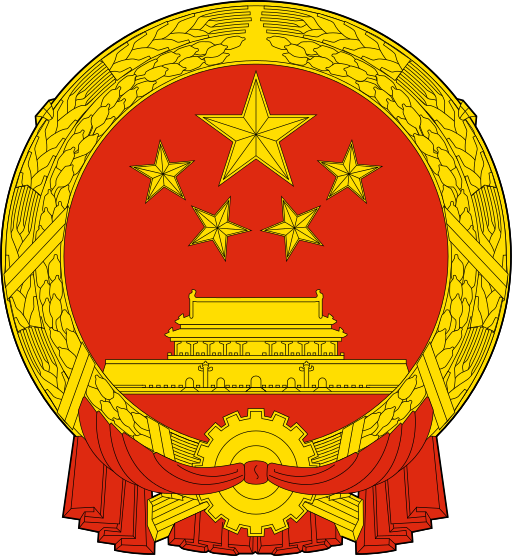Hong Kong’s Chief Executive (CE) Leung Chun-ying is under fire from all quarters of the democratic front following a Beijing official’s ‘controversial’ remarks. Central government liaison office director Zhang Xiaoming, who said this past Saturday that the chief executive was in a “special legal position that transcends” the executive branch, legislature and the judiciary.
The Beijing official also drew ire by adding the concept of separation of three powers was confined to sovereign states and could only serve as a reference for Hong Kong and that such separation was not practiced by the British colonial government either – so why expect that now?.
Surely the CE must defend the Beijing liaison office’s director Zhang’s remarks as the status of Hong Kong chief executive “is indeed transcendent” – another term used is that he ‘over-rides’ which needs to be taken in context as Leung Chun-ying has pointed out.
Though the press is calling Zhang’s remarks contentious, fact is the city is not a sovereign state but a special administrative region with all its powers authorised by the central government, and Beijing’s man is only stating how it is.
Of course Hong Kongers want to see him as their representative to the Central Government but it’s quite the reverse, though of course the CE is also the channel for Hong Kong views to reach Beijing.
Zhang Xiaoming’s ‘controversial’ speech on Hong Kong governance was only controversial owing to the local state-of-denial, of the reality, by all those who demand a democratic form not presented in the Basic Law of Hong Kong. No matter how the lawyers twist and turn the hard news is exactly as presented on September 12, when the Joint Committee for the Promotion of the Basic Law held a seminar commemorating the 25th anniversary of the promulgation of the Basic Law.
That’s when Zhang Xiaoming, as director of the central government’s liaison office in Hong Kong, delivered his speech titled “A Correct Understanding of the Characteristics of the Political System of the Hong Kong Special Administrative Region”.
Commenting the next day, James Tien Pei-chun, honorary chairman of the Liberal Party, got it right saying on a Commercial Radio show: “His status may be transcendent, but his powers are not.”
The well versed CE has since reminded Hong Kong that it was untenable to speak of the separation of powers when detailing the city’s political structure as Deng Xiaoping had stated the city’s mini-constitution was not written to embody such principle.
Here is the speech of Zhang Xiaoming, director of the central government’s liaison office, as it appeared in the South China Morning Post:
Since the Basic Law was promulgated 25 years ago, and especially since Hong Kong was returned to China 18 years ago, people have developed a deeper understanding of “One Country, Two Systems” and the Basic Law. Today, although there are still people who do not give up on such ideas as “public nomination” and “party nomination”, it is undeniable that fewer and fewer people are holding the view that these ideas are in line with the Basic Law. From this perspective, although the goal of political reform at the time, that is, universal suffrage for the chief executive – was not achieved, yet achievements have been significant for the promotion of the “One Country, Two Systems” principle and the Basic Law.
For a correct understanding and implementation of the Basic Law, we also need the courage to clarify some erroneous or ambiguous points of view. On this occasion, I would like to talk about problems regarding the political system of the HKSAR.
What are the characteristics of the HKSAR’s political system? For a long time, there have been many different views about this issue.
First, it should be clear that Hong Kong has not been implementing the political system characterised by the “separation of powers”, neither before nor after its return to China. Mr Deng Xiaoping made this very clear during his meeting with the Hong Kong Basic Law Drafting Committee on April 16, 1987. He said: “Hong Kong’s system of government should not be completely westernised. For a century and a half Hong Kong has been operating under a system different from that of Britain and of the United States. I am afraid it would not be appropriate for the Hong Kong system to copy that of Britain or the United States with, for example, separation of the three powers and a British or American parliamentary system. Nor would it be appropriate for people to judge whether Hong Kong’s system is democratic on the basis of whether it has those features … We must be realistic and determine our system and our method of administration in light of our own specific conditions.” Here, we can see that the non-implementation of the “separation of powers” was an important guiding principle in the drafting of relevant provisions of the Basic Law. Another misunderstanding that we need to clarify is: we cannot simply presume that Hong Kong is implementing the “separation of powers” system simply because there are executive, legislature and the judiciary and that they exercise check and balance. If the system is understood in this way, we would find that there are very few countries or regions in the world which are implementing system of the separation of powers.
To read more go to: http://www.scmp.com/news/hong-kong/politics/article/1858484/zhang-xiaomings-controversial-speech-hong-kong-governance










